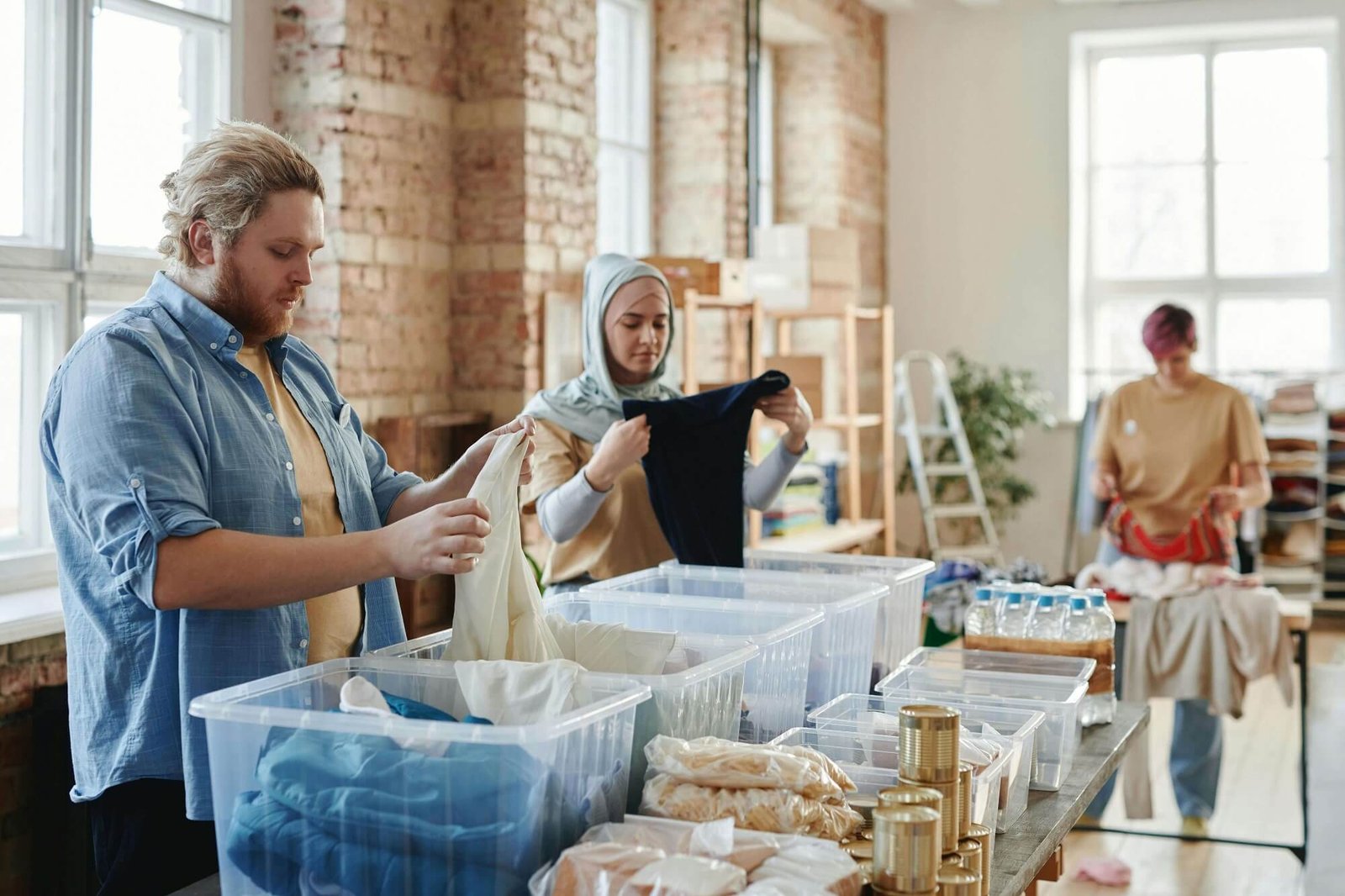Introduction To Our Clothing Brand
Our clothing brand was born out of a growing awareness of the environmental challenges facing the textile industry. Founded with the goal of revolutionizing production practices, our story is written around core values such as sustainability, quality and responsibility. As a company, we recognize the significant impact that fashion can have on the environment, and we are committed to reversing this trend by fostering an ethical approach in every aspect of our creative process.
We firmly believe that it is time to reevaluate our relationship with fashion. Rather than focusing on quantity, our philosophy is to prioritize quality. This means designing clothes that last, that are timeless and that allow our customers to express their personality without giving in to the lure of ephemeral trends. Through sustainable materials and craftsmanship, we aim to create a collection that stands the test of time, both aesthetically and functionally.
By integrating sustainability principles into our practices, we also want to raise awareness among our customers about the importance of consuming less but better. Producing fewer clothes is not only an economic strategy; it is a necessity to reduce our carbon footprint and limit the textile waste that pollutes our planet. Each piece we offer is the result of rigorous selection and responsible production, meaning that each purchase is a conscious choice in favor of sustainability.
Our brand positions itself not only as a fashion player, but also as a catalyst for change in the textile industry. We invite you to join our movement towards more ethical fashion, because together, we can contribute to a more sustainable future.

The Importance Of Sustainability
Sustainability has become a key concept in the fashion industry. With the rise of fast fashion, where clothes are produced on a large scale and at low prices, pollution and waste of resources have increased at an alarming rate. This booming industry has negative consequences not only for our environment, but also for the working conditions of the many people involved in it. Indeed, the overconsumption of clothing has direct repercussions on ecosystems, with the excessive use of raw materials and the production of textile waste.
Fast fashion practices encourage a culture of the ephemeral, where clothes are designed to be worn only a few times before being thrown away. As a result, the amount of waste generated is colossal. According to some estimates, nearly 92 million tons of textile waste are produced each year worldwide. This situation poses a major challenge for waste management and maintaining the health of our planet. Furthermore, the working conditions of employees in textile factories are often precarious, which raises important ethical questions about how clothes are made.
Faced with these environmental and social challenges, it is essential to promote more responsible consumption practices. Adopting sustainable fashion can help reduce the ecological impact of the textile industry. This involves favoring brands committed to ethical practices, opting for recycled or organic materials, and above all, rethinking our relationship with clothing by avoiding overconsumption. By integrating sustainability values into our lifestyle, we can defend the interests of the planet while supporting fair working conditions.
Manufacturing Process
In the modern textile industry, the quality of garments is essential to promote sustainable practices. Each item designed by our team incorporates a systematic approach dedicated to rigorous quality testing, ensuring increased durability and optimal performance. From the design phase, each garment undergoes a series of laboratory assessments, which test the materials used as well as the manufacturing processes. These tests include verifications for strength, fading and resistance to wear.
We firmly believe that the manufacturing process is not limited to the final product, but also includes a culture of continuous improvement. At each stage of production, we integrate customer feedback that allows us to adjust and improve our methods. By taking into account user opinions, we are able to make significant changes, whether in terms of design or materials. This dynamic of evolution is fundamental to the implementation of responsible practices in the textile sector.
Quality testing not only protects our reputation; it also promotes a reduced environmental footprint by limiting the waste of resources. A high-quality garment that consumers wear longer directly contributes to more rational and responsible consumption. By integrating advanced testing techniques and constant feedback, we affirm our commitment to sustainable fashion. This process highlights our ambition not only to produce stylish garments, but also to reduce our environmental impact and encourage a textile industry that prioritizes sustainability.

Contribute To This Initiative
The textile industry’s revolution towards more sustainable fashion is not only a responsibility of brands, but also of consumers. Every individual has a role to play in this significant change. First of all, it is essential to adopt a conscious purchasing approach. Rather than giving in to the temptation of fleeting trends, opt for quality clothing, designed to last. Look for brands that promote ethical and sustainable practices, by using recycled or organic materials. By choosing products from environmentally friendly brands, you are directly supporting initiatives that aim to reduce the ecological impact of the textile industry.
Next, caring for the clothes we already own plays a crucial role in extending their lifespan. Learning how to wash, dry, and store your clothes properly can help prevent premature wear and tear. Opt for low-temperature wash cycles and avoid tumble drying when possible. It can also be helpful to learn some basic sewing skills. This will allow you to repair minor damages such as holes or missing buttons, rather than throwing them away immediately.
Finally, consider participating in community initiatives such as clothing swaps, which not only encourage reuse but also build connections within the community. Educate your friends about the importance of sustainable fashion and share your discoveries about ethical brands via social media. By doing this, you are helping to create a movement towards sustainable fashion. By actively engaging in this cause, each consumer becomes an agent of change, thus driving a much-needed transformation in the textile industry.

